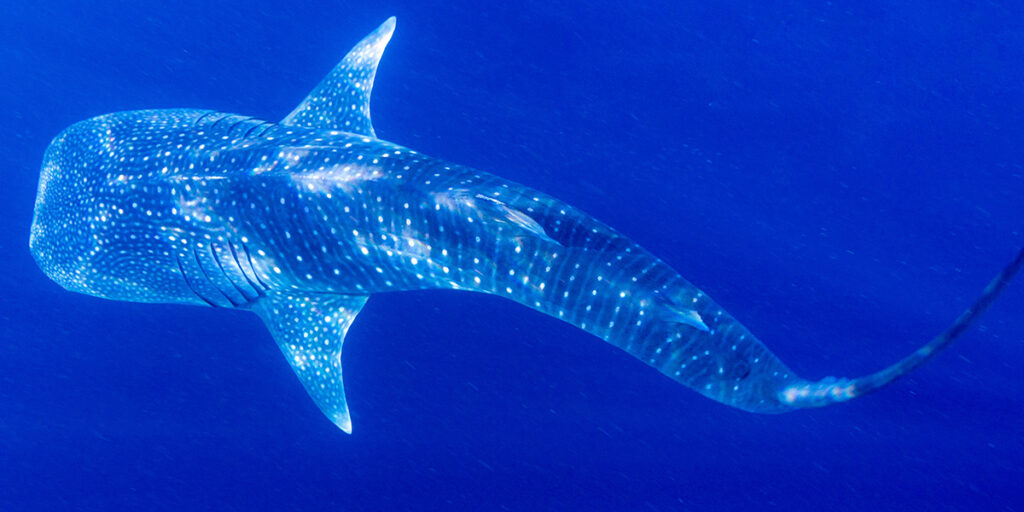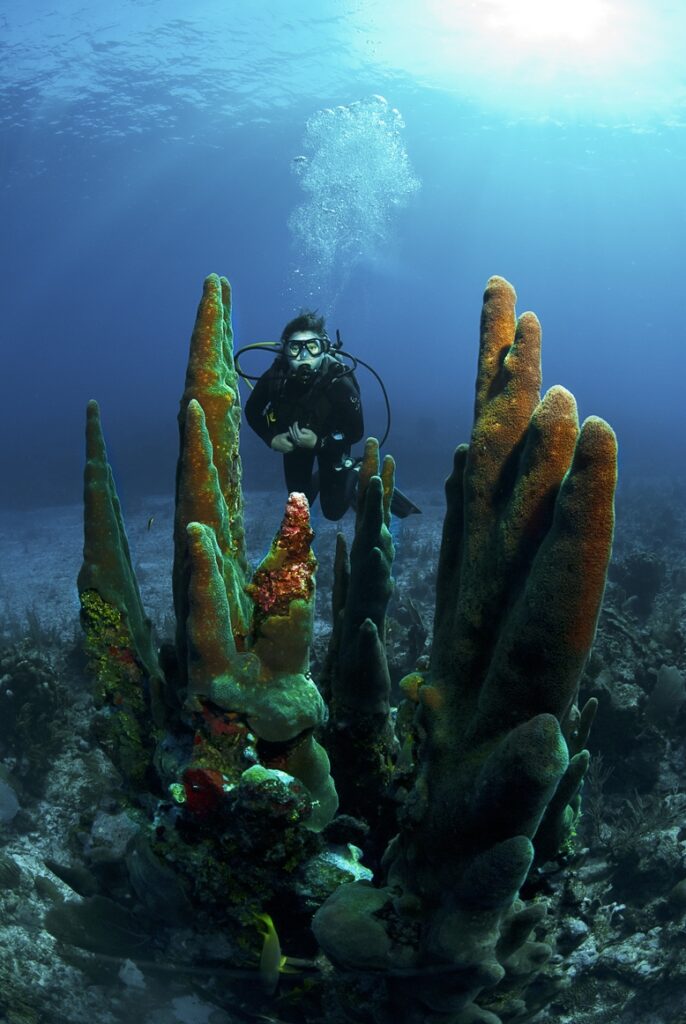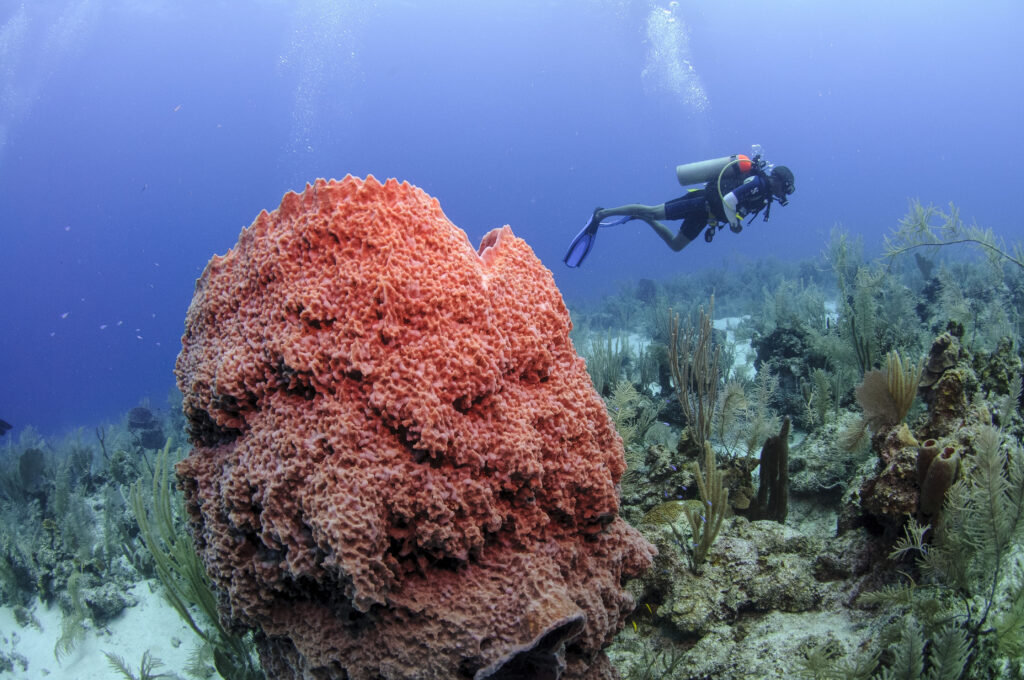Gladden Spit Marine Reserve and Silk Cays
During the full-moon phases from March through June of each year, this is your best chance of encountering the elusive and docile whale shark. Snapper, grouper and other varieties of fish congregate in the reserve to spawn each year. The huge whale sharks are filter feeders, and search out the area to feed on the eggs. The yearly spawning of the fish, and the migration of the whale sharks is biologically crucial for all the species, and very exciting for us humans to witness.
Although fishing is heavily restricted in the Gladden Spit Marine Reserve, visitors to the spectacular blue waters are permitted to dive with the whale sharks. Being filter feeders, whale sharks pose little danger to humans, allowing divers to interact and play with these beautiful creatures of the deep.
Whale sharks can grow up to 12 meters (41 feet) long, and weigh up to 66,000 pounds, making them the largest-known species of fish on the planet. Feeding on fish eggs, tiny plankton and microscopic shrimp known as krill, whale sharks have no teeth, which is why they can be approached by humans with minimal risk. Whale sharks are curious and playful animals, often approaching and interacting with divers.



